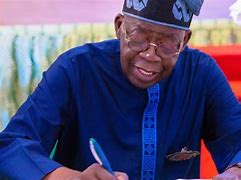Minister of Education, Tunji Alausa, has announced that President Bola Tinubu has reaffirmed the government’s commitment to reintroducing history as a core subject in the country’s basic school curriculum.
This significant policy marks a turning point in the education sector, as it aims to reconnect younger generations with Nigeria’s rich historical heritage.
History was removed from Nigeria’s basic school curriculum in 2007, a controversial decision that attracted widespread criticism over the years.
Following its removal, historical topics were briefly incorporated into social studies, which left students with limited exposure to Nigeria’s past.
In 2018, the federal government initiated efforts to reinstate history as a standalone subject in primary and junior secondary schools.
READ ALSO: EFCC Injects N50bn Into Nigerian Education Loan Fund
Adamu Adamu, the then-Minister of Education, stated that the Nigerian Education Research and Development Council (NERDC) would spearhead efforts to extract history from the social studies curriculum and develop a comprehensive standalone curriculum.
Adamu emphasized that the revamped history curriculum would serve as a vital tool for national integration and nation-building.
To support this initiative, 3,700 history teachers were selected for training during the initial phase to improve the teaching and delivery of the subject.
Several states, including Lagos and Taraba, have since begun implementing the federal policy to restore history in schools.
Speaking during an appearance on Channels Television, Minister Tunji Alausa highlighted the importance of this initiative.
READ ALSO: Kano Government Breaks Silence On Tax Reform Bills
“Let me go to basic education—the curriculum is good. What has been missing in the past is Nigerian history. We now have people of 30 years disconnected from our history. It doesn’t happen in any part of the world,” Alausa said.
He added, “President Bola Tinubu has mandated that we put that back in our curriculum, and that is back. From 2025, our students in primary and secondary schools will have that as part of their studies.”
The reintroduction of history aims to address the gaps left by its absence. Former Minister Adamu Adamu previously expressed concern that the lack of historical education had contributed to declining morals, weakened civic values, and a disconnect between Nigerians and their heritage.
READ ALSO: Full Speech: President Tinubu’s New Year Message To Nigerians
Stakeholders in the education sector view this policy as a crucial step towards fostering a deeper understanding of Nigeria’s history among the younger generation.
By providing students with a comprehensive knowledge of their country’s past, the government hopes to instill a sense of pride and civic responsibility while promoting national unity and identity.
As Nigeria prepares for the full implementation of this policy in 2025, education ministries across the country are expected to ramp up efforts to train teachers and adapt their curricula.

